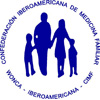Intestinal parasites and sanitary conditionas on rural areas at Ibiuna/SP – Brasil
Resumo
Introdução: Sanitary conditions are frequently scarce in rural areas; intestinal parasites represent a public health care serious problem, especially among children and tots, affecting physical and intellectual development. The frequency of these parasites is associated to different factors like social, economical, sanitary and conditions, geographic localization and nutritional state.
Objetivos: Making possible an integrated plan of action among schools and rural communities and correlate intestinal parasites frequency on scholars with environmental sanitary conditions.
Metodologia ou descrição da experiência: The Kato-Katz, Hoffmann and modified formaldehyde- ether parasitological methodology were used on 166 fecal samples from students ageing from 4 to 12 years old from four Vargem do Salto rural schools. The students filling in the questionnaire were made by parental accordance.
Resultados: From 166 samples 41 were positive for intestinal parasites and from that 16 samples showed multiparasitism. The observed parasites were: Entamoeba coli (41%), Endolimax nana (34%), Giardia duodenalis (19%), Iodamoeba bütschlii (2%), Trichuris trichiura (32%), Ascaris lumbricoides (27%) and Ancilostomídeos (2%). The student’s house water sources are natural streams (28%) and wells (65%) both without treatment. The sewage destination was appointed to a cesspit by 86% students and other destination by 9%. The garbage destination was weekly and fortnightly collection (13% and 55%) and burned (26%).
Conclusões ou hipóteses: The presence of intestinal parasites might be also an environmental sanitary conditions indicator. All positive cases were free treated and these results in spite of be partial justified the need of health, sanitary and educational integrated policies for the region.
Palavras-chave
Texto completo:
PDFApontamentos
- Não há apontamentos.
Este periódico é de responsabilidade das associações:
Apoio institucional:







